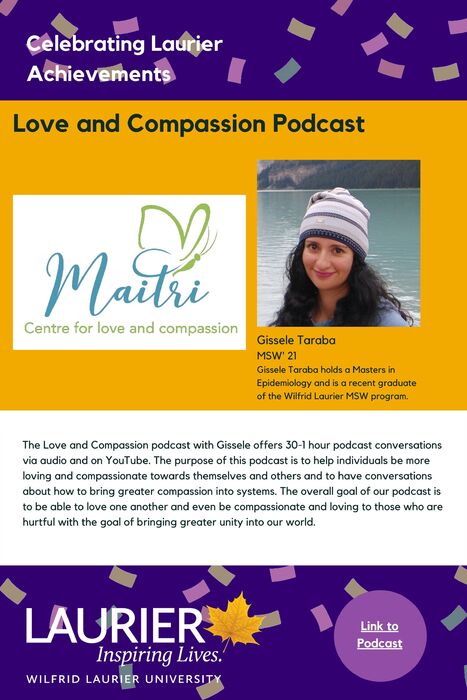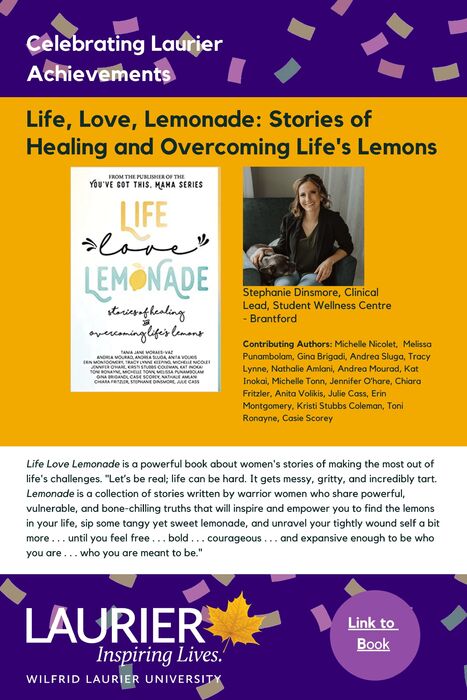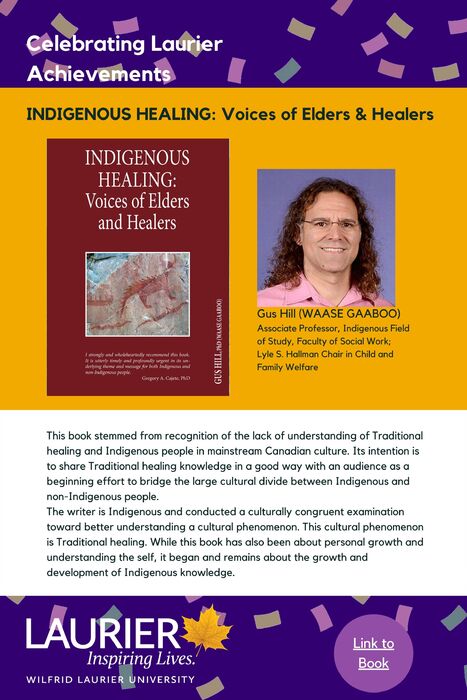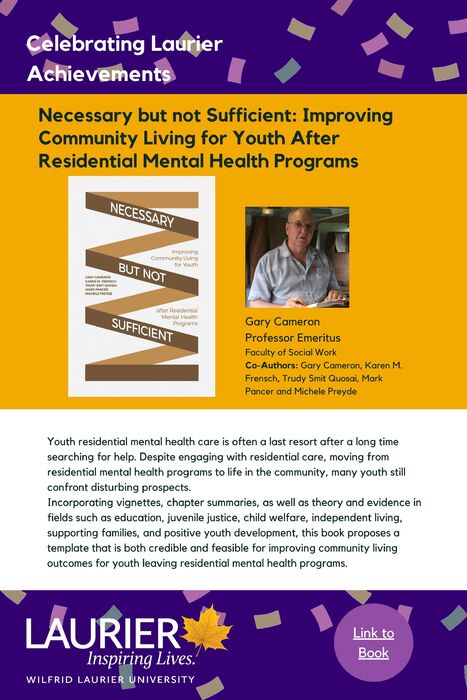-
 Celebrating our Love and Compassion Podcast!
Celebrating our Love and Compassion Podcast! The Love and Compassion podcast with Gissele offers 30-1 hour podcast conversations via audio and on YouTube. The purpose of this podcast is to help individuals be more loving and compassionate towards themselves and others and to have conversations about how to bring greater compassion into systems. The overall goal of our podcast is to be able to love one another and even be compassionate and loving to those who are hurtful with the goal of bringing greater unity into our world.
-
 Life, Love, Lemonade
Life, Love, Lemonade Life Love Lemonade is a powerful book about women's stories of making the most out of life's challenges. "Let’s be real; life can be hard. It gets messy, gritty, and incredibly tart. Lemonade is a collection of stories written by warrior women who share powerful, vulnerable, and bone-chilling truths that will inspire and empower you to find the lemons in your life, sip some tangy yet sweet lemonade, and unravel your tightly wound self a bit more . . . until you feel free . . . bold . . . courageous . . . and expansive enough to be who you are . . . who you are meant to be."
-
 Indigenous Healing: Voices of Elders and Healers
Indigenous Healing: Voices of Elders and Healers This book stemmed from recognition of the lack of understanding of Traditional healing and Indigenous people in mainstream Canadian culture. Its intention is to share Traditional healing knowledge in a good way with an audience as a beginning effort to bridge the large cultural divide between Indigenous and non-Indigenous people.
The writer is Indigenous and conducted a culturally congruent examination toward better understanding a cultural phenomenon. This cultural phenomenon is Traditional healing. While this book has also been about personal growth and understanding the self, it began and remains about the growth and development of Indigenous knowledge.
-
 Necessary but not Sufficient: Improving Community Living for Youth After Residential Mental Health Programs
Necessary but not Sufficient: Improving Community Living for Youth After Residential Mental Health Programs Youth residential mental health care is often a last resort after a long time searching for help. Despite engaging with residential care, moving from residential mental health programs to life in the community, many youth still confront disturbing prospects.
Incorporating vignettes, chapter summaries, as well as theory and evidence in fields such as education, juvenile justice, child welfare, independent living, supporting families, and positive youth development, this book proposes a template that is both credible and feasible for improving community living outcomes for youth leaving residential mental health programs.
 Celebrating our Love and Compassion Podcast! The Love and Compassion podcast with Gissele offers 30-1 hour podcast conversations via audio and on YouTube. The purpose of this podcast is to help individuals be more loving and compassionate towards themselves and others and to have conversations about how to bring greater compassion into systems. The overall goal of our podcast is to be able to love one another and even be compassionate and loving to those who are hurtful with the goal of bringing greater unity into our world.
Celebrating our Love and Compassion Podcast! The Love and Compassion podcast with Gissele offers 30-1 hour podcast conversations via audio and on YouTube. The purpose of this podcast is to help individuals be more loving and compassionate towards themselves and others and to have conversations about how to bring greater compassion into systems. The overall goal of our podcast is to be able to love one another and even be compassionate and loving to those who are hurtful with the goal of bringing greater unity into our world. Life, Love, Lemonade Life Love Lemonade is a powerful book about women's stories of making the most out of life's challenges. "Let’s be real; life can be hard. It gets messy, gritty, and incredibly tart. Lemonade is a collection of stories written by warrior women who share powerful, vulnerable, and bone-chilling truths that will inspire and empower you to find the lemons in your life, sip some tangy yet sweet lemonade, and unravel your tightly wound self a bit more . . . until you feel free . . . bold . . . courageous . . . and expansive enough to be who you are . . . who you are meant to be."
Life, Love, Lemonade Life Love Lemonade is a powerful book about women's stories of making the most out of life's challenges. "Let’s be real; life can be hard. It gets messy, gritty, and incredibly tart. Lemonade is a collection of stories written by warrior women who share powerful, vulnerable, and bone-chilling truths that will inspire and empower you to find the lemons in your life, sip some tangy yet sweet lemonade, and unravel your tightly wound self a bit more . . . until you feel free . . . bold . . . courageous . . . and expansive enough to be who you are . . . who you are meant to be." Indigenous Healing: Voices of Elders and Healers This book stemmed from recognition of the lack of understanding of Traditional healing and Indigenous people in mainstream Canadian culture. Its intention is to share Traditional healing knowledge in a good way with an audience as a beginning effort to bridge the large cultural divide between Indigenous and non-Indigenous people. The writer is Indigenous and conducted a culturally congruent examination toward better understanding a cultural phenomenon. This cultural phenomenon is Traditional healing. While this book has also been about personal growth and understanding the self, it began and remains about the growth and development of Indigenous knowledge.
Indigenous Healing: Voices of Elders and Healers This book stemmed from recognition of the lack of understanding of Traditional healing and Indigenous people in mainstream Canadian culture. Its intention is to share Traditional healing knowledge in a good way with an audience as a beginning effort to bridge the large cultural divide between Indigenous and non-Indigenous people. The writer is Indigenous and conducted a culturally congruent examination toward better understanding a cultural phenomenon. This cultural phenomenon is Traditional healing. While this book has also been about personal growth and understanding the self, it began and remains about the growth and development of Indigenous knowledge. Necessary but not Sufficient: Improving Community Living for Youth After Residential Mental Health Programs Youth residential mental health care is often a last resort after a long time searching for help. Despite engaging with residential care, moving from residential mental health programs to life in the community, many youth still confront disturbing prospects. Incorporating vignettes, chapter summaries, as well as theory and evidence in fields such as education, juvenile justice, child welfare, independent living, supporting families, and positive youth development, this book proposes a template that is both credible and feasible for improving community living outcomes for youth leaving residential mental health programs.
Necessary but not Sufficient: Improving Community Living for Youth After Residential Mental Health Programs Youth residential mental health care is often a last resort after a long time searching for help. Despite engaging with residential care, moving from residential mental health programs to life in the community, many youth still confront disturbing prospects. Incorporating vignettes, chapter summaries, as well as theory and evidence in fields such as education, juvenile justice, child welfare, independent living, supporting families, and positive youth development, this book proposes a template that is both credible and feasible for improving community living outcomes for youth leaving residential mental health programs.